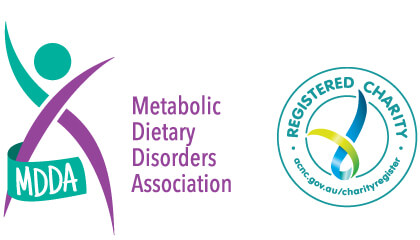
This webpage will act as a resource for Care & Education. It will help with patient empowerment through education and information provision.
The Patient Pathways Program initiative is part of the Patient Pathways Pilot program developed by the Centre for Community-Driven Research. The program has placed a specialist tele-health nurse, Joanne Campbell, in our organisation to provide a pathway for support for patients to access a coordinated comprehensive case management service, to talk about their experience so that this information can inform future research, treatment, care, information and support across the health sector.
The program gives the opportunity to not only support patients and their families, but also implement a system to encourage community engagement and feedback in health and research.
It is important to also note that the nurse will not provide treatment advice. The main objective of this role is to develop tailored care plans, provide practical and emotional support, education and connection with existing services.

Need to Talk?
Feel free to call our Patient Pathways Care Coordinator anytime Monday, Tuesday or Wednesday on
03 9723 0700

Where to find information about medications
Unsure about who to contact about information on medications?

Tips for taking blood samples
Want some tips for taking blood samples?

Information on Artificial Sweeteners
Unsure about which artificial sweeteners contain Phe?
Where to find information about medications
Information about medications containing phenylalanine can be found in the PKU Handbook, chapter 14 page 125. The PKU Handbook can be found here.
Other places to find information about medications are also:
- Your Health Professional – GP/doctor/dentist/nurse/midwife – discuss with them that you will be avoiding medications containing phenylalanine for your health.
- Your Pharmacist – to guarantee you are getting reliable information about your medicines and what the ingredients are is to talk to your pharmacist and ask for a “Consumer Medicine Information (CMI) leaflet”.
- Read the CMI (written user friendly) before you begin taking your medication to learn about how to safely take your medication and about possible side effects and interactions with other substances. While CMIs are a valuable source, reading one does not take the place of discussion with your health professionals. You can search and download CMIs for prescription medication from the Australian Therapeutic Goods Administration.
- Medicines Line (Australia) – can provide information on prescription, over-the-counter and complementary medicines. TEL 1300 MEDICINE (1300 633 424)
- Always seek your own medical advice for your individual health care needs. For any concerns – call your Metabolic Clinic Team (as per our MDDA Social Media Policy)
- There is also a poisons hotline, open 24 hours a day. Call 13 11 26 from anywhere in Australia to seek advice on what to do if you’ve taken the wrong medication or you think you’ve ingested something poisonous. (In an emergency always dial 000)
– Patient Pathways Care Co-Ordinator
Information on Artificial Sweeteners
Whilst the PKU Handbook does have information on what artificial sweeteners to avoid, the information was amended in 2017. The PKU Handbook can be found here, but it doesn’t include the amended information on artificial sweeteners. ASIEM is currently in the process of updating the handbook.
